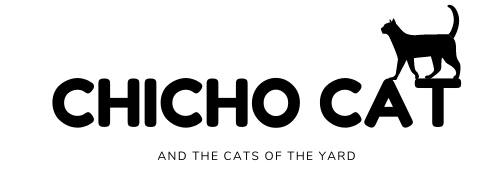As obligate carnivores, cats have evolved to thrive on a diet primarily consisting of meat. This natural dietary preference often prompts cat owners to consider feeding their feline companions raw meat as part of their diet. However, the practice of feeding raw meat (like raw chicken) to cats comes with both potential benefits and risks. This diet provides cats with essential nutrients, including protein, vitamins, minerals, and amino acids, which are crucial for their overall health and well-being.
Benefits
- Nutritional adequacy: Raw meat closely resembles the natural diet of cats, providing them with high-quality protein and essential nutrients that support muscle development, immune function, and overall health.
- High moisture content: Raw meat has a high moisture content, which can help keep cats hydrated, especially those that are reluctant to drink sufficient water from a bowl.
- Dental health: Chewing on raw meat and bones can help maintain dental health in cats by reducing plaque and tartar buildup and promoting gum health (the same thing happens when cat eats fresh catnip leaves).
- Potential allergies: Some cats may have food allergies or sensitivities to certain ingredients commonly found in commercial cat food. Feeding raw meat allows owners to control the ingredients and potentially avoid allergens that could trigger adverse reactions in sensitive cats.

Risks
- Risk of bacterial contamination: Raw meat, including poultry, beef, and fish (like tuna), can be contaminated with harmful bacteria such as Salmonella, E. coli, and Campylobacter. These pathogens can pose health risks to both cats and humans, especially immunocompromised individuals.
- Nutritional imbalance: Feeding raw meat alone may not provide all the essential nutrients that cats need for optimal health. Without careful supplementation and balance, cats may develop nutritional deficiencies over time.
- Parasitic infections: Raw meat can harbor parasites such as Toxoplasma gondii and Trichinella spiralis, which can infect cats and cause various health problems, including gastrointestinal issues and organ damage.
- Potential injuries: Consuming raw bones can pose a choking hazard or cause dental fractures or gastrointestinal injuries in cats, especially if they ingest large pieces or splinters.
Can cats eat raw hamburger meat?
Raw food diets for cats have gained popularity among some pet owners, with raw hamburger meat being one of the options considered. Additionally, raw meat can contain parasites like roundworms and tapeworms, which can lead to health problems in cats. Some cats may experience digestive upset, including vomiting and diarrhea, after consuming raw hamburger meat. Their digestive systems may not be able to handle certain components of raw meat.

Some cats may find raw hamburger meat to be highly palatable, making it an appealing option for finicky eaters or cats with food sensitivities. Choose high-quality, fresh hamburger meat from reputable sources. Practice proper food handling and hygiene when preparing and serving raw hamburger meat. Keep a close eye on your cat for any signs of upset, foodborne illness, or nutritional deficiencies after introducing raw hamburger meat into their diet.
Can cats eat raw deer meat?
Deer meat, also known as venison, has been consumed by humans for centuries and is known for its rich flavor and nutritional benefits. In recent years, there has been growing interest in incorporating deer meat into both human and pet diets. Raw deer meat is prized for its lean protein content and abundance of essential nutrients. Raw deer meat tends to be leaner and lower in fat, particularly saturated fat (it goes well with broccoli, which is also low in fat). This makes it a favorable option for individuals looking to reduce their fat intake while still enjoying the nutritional benefits of red meat.
Deer meat is a significant source of iron, which is more readily absorbed by the body compared to non-heme iron found in plant-based foods (for example the honey). Hunting and consuming wild game, including deer, may have environmental implications, particularly in regions where deer populations need to be managed to prevent overpopulation and ecological damage.

Can cats eat raw red meat?
Red meat (as well as eggs or dairy products) contains essential vitamins and minerals, including iron, zinc, phosphorus, and B vitamins, which play vital roles in various physiological functions in cats. Of course, be careful to bacteria, to parasitic infections or any stomach upset. If you’re concerned about the risks associated with feeding raw red meat to your cat, consider alternative options such as commercially available raw cat food or cooked meat.
Can cats eat raw pork meat?
While pork is a common meat in human diets, what about cats? Is it safe for them? Raw pork meat can harbor parasites from the Taenia species, which can cause various health issues in cats, including muscle pains. Feeding raw pork meat alone may not provide all the essential nutrients that cats need for optimal health. Practice strict food safety measures when handling raw pork meat, including thorough handwashing, separate storage from other foods, and cleaning surfaces and utensils thoroughly to prevent cross-contamination.

Can cats eat raw crab meat?
Crab meat contains omega-3 fatty acids, such as EPA and DHA, which have anti-inflammatory properties and support cardiovascular health in cats. Some cats may find the taste and texture of crab meat appealing, making it a potential treat or addition to their diet. Raw crab meat, like other raw seafood, can be contaminated with harmful bacteria such as Vibrio, and Listeria, which can cause foodborne illnesses in cats. The shells of crabs hide dangers and require attention. Care must be taken to remove all shells and cartilage before feeding crab meat to cats. Some cats may have allergies or sensitivities to seafood, including crab meat. Allergic reactions can manifest as itching, skin inflammation, digestive upset, or respiratory symptoms.
In conclusion, feeding raw meat to cats can offer potential benefits such as nutritional adequacy, dental health benefits, and allergen avoidance. However, it also carries risks including bacterial contamination, nutritional imbalances, parasitic infections, and potential injuries. As with any dietary decision, it’s essential for cat owners to weigh the pros and cons carefully, consult with a veterinarian, and take appropriate precautions to ensure the safety and well-being of their feline companions. Whether opting for raw meat or commercial alternatives, prioritizing your cat’s health and nutritional needs is paramount.








